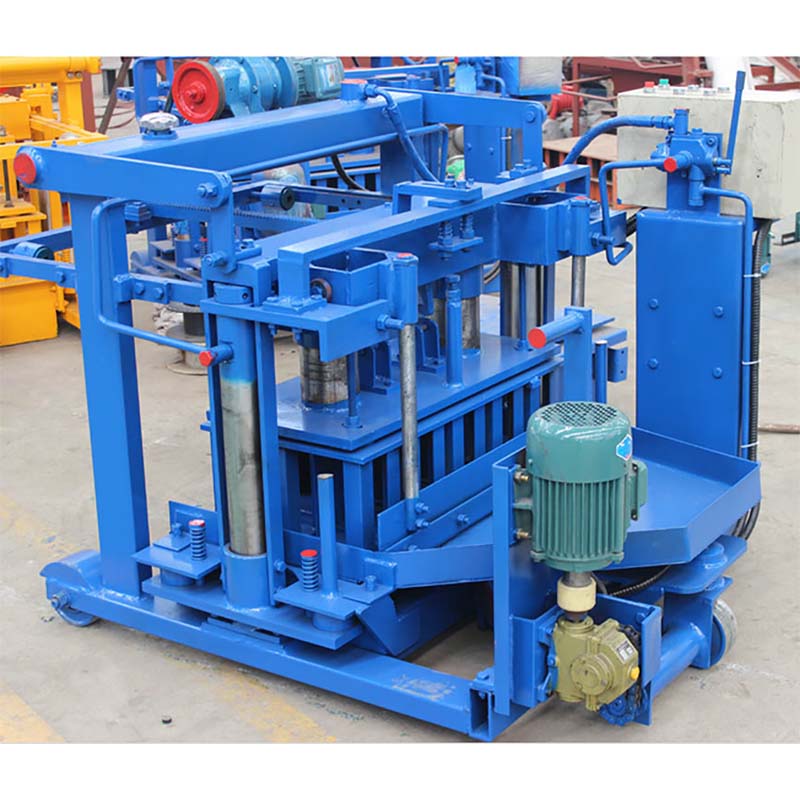
The Role of Government Policies and Incentives in the Block Manufacturing Business
Introduction
The block manufacturing industry is a crucial part of the construction sector, providing the building blocks for homes, commercial buildings, and infrastructure projects. While the industry is driven by market forces and consumer demand, government policies and incentives play a significant role in shaping its dynamics. In this article, we will explore the impact of government policies and incentives on the block manufacturing business, the various ways in which governments influence the industry, and the benefits and challenges that manufacturers face in this regulatory landscape.
Government Policies and Their Influence
Government policies can significantly influence the block manufacturing business by shaping various aspects of the industry, including environmental regulations, safety standards, trade, taxation, and more. Here are some key areas where government policies have a substantial impact:
1. **Environmental Regulations:** Environmental policies can dictate the types of materials that can be used in block production and impose emission limits on manufacturing processes. Regulations may also encourage or mandate recycling and sustainability practices.
2. **Building Codes and Safety Standards:** Government agencies often establish building codes and safety standards that dictate the types of blocks that can be used in construction projects. Compliance with these standards is essential for manufacturers to sell their products in the market.
3. **Trade and Import/Export Regulations:** Government policies can influence the import and export of block products, affecting trade dynamics and market competitiveness. Tariffs, import restrictions, and export incentives are examples of trade-related policies that can shape the industry.
4. **Taxation and Incentives:** Tax policies can influence the cost structure of block manufacturing. Governments may offer tax incentives, such as investment tax credits or research and development (R&D) tax credits, to encourage innovation and expansion in the industry.
5. **Subsidies and Grants:** Governments may provide subsidies or grants to support research, development, and the adoption of sustainable practices in block manufacturing. These incentives can promote innovation and environmental responsibility.
Benefits of Government Policies and Incentives
Government policies and incentives in the block manufacturing business offer several benefits to both manufacturers and society as a whole:
1. **Environmental Responsibility:** Regulations promoting sustainable practices, recycling, and reduced emissions encourage manufacturers to adopt eco-friendly methods, reducing the industry’s environmental impact.
2. **Market Standardization:** Building codes and safety standards set by governments ensure that block products meet consistent quality and safety criteria, instilling confidence in builders and consumers.
3. **Innovation and Research:** Tax incentives, subsidies, and grants stimulate innovation, research, and development in block manufacturing, leading to the creation of better products and more efficient production methods.
4. **Consumer Protection:** Government regulations safeguard consumers by ensuring that block products meet safety and quality standards, reducing the risk of structural failures and accidents.
5. **Economic Growth:** Policies that support the block manufacturing industry can contribute to economic growth, creating jobs and driving investment in the construction sector.
Challenges of Government Policies and Incentives
While government policies and incentives offer many benefits, they also present challenges for the block manufacturing business:
1. **Compliance Costs:** Meeting regulatory requirements and quality standards can be costly for manufacturers, especially for smaller businesses with limited resources.
2. **Complexity:** Navigating a complex regulatory landscape can be challenging, leading to compliance issues and regulatory burdens.
3. **Market Uncertainty:** Frequent changes in policies and regulations can create uncertainty in the market, making it difficult for manufacturers to plan and invest in the long term.
4. **Competitive Disadvantage:** Regulatory compliance costs can put domestic manufacturers at a competitive disadvantage compared to foreign competitors operating in regions with lax regulations.
5. **Lack of Incentives:** In some regions, governments may not provide sufficient incentives to encourage sustainability, innovation, and industry growth.
Examples of Government Policies and Their Impact
To understand the real-world impact of government policies and incentives on the block manufacturing business, let’s consider a few examples:
**Example 1: Building Codes in the United States**
In the United States, building codes are established at the state and local levels, with some influence from federal agencies like the National Institute of Standards and Technology (NIST). These codes set construction standards, including requirements for block products. Compliance with these codes is mandatory and ensures that blocks used in construction projects meet specific quality and safety criteria. This standardized approach provides confidence to builders and consumers, knowing that structures are constructed to meet safety standards.
**Example 2: Tax Incentives in Germany**
Germany is known for its robust support of renewable energy and sustainability. The German government provides various tax incentives to companies that invest in energy-efficient and sustainable technologies, including block manufacturers. These incentives encourage the adoption of eco-friendly production methods and the development of sustainable block products. They also contribute to Germany’s reputation as a leader in sustainable construction practices.
**Example 3: Emission Regulations in China**
China, as one of the largest block manufacturing markets in the world, has implemented stringent environmental regulations to curb pollution. Emission limits have been set for the manufacturing processes used in the production of blocks, driving manufacturers to adopt cleaner and more efficient technologies. While these regulations have raised production costs, they have also prompted innovation and a shift towards more sustainable practices in the industry.
Conclusion
Government policies and incentives have a significant influence on the block manufacturing business, shaping the industry’s environmental practices, safety standards, trade dynamics, and financial incentives. While these policies offer many benefits, including environmental responsibility, standardization, innovation, consumer protection, and economic growth, they also present challenges, such as compliance costs, complexity, and market uncertainty.
Examples from different regions, such as the United States, Germany, and China, highlight the impact of government policies on the industry. As the construction sector continues to evolve and prioritize sustainability, government policies and incentives will continue to play a pivotal role in shaping the future of block manufacturing, fostering responsible and innovative practices in the industry. Manufacturers should stay informed about these policies and proactively adapt to meet evolving regulatory requirements while seizing opportunities for growth and sustainability.
